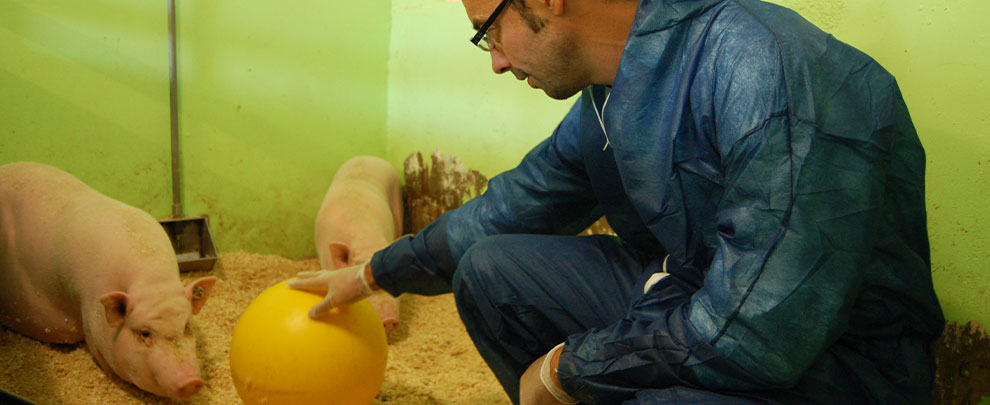Blog
Blog

Specipig, pigs for biomedical research
26th March 2020 - News
The conventional pig has great value as an experimental model due to its physiological and physical similarity to the human species, but one of the handicaps that scientists must historically face is its large dimensions and its weight, about 200 kg in adulthood, fact that makes it difficult to handle in a laboratory.
Thus, from the need for researchers to have specific pigs for research, in the 1960s a group of Germans developed the first dwarf pig model. This has the same advantages for research as the conventional pig, but its weight stabilizes at 35 kg when it reaches adulthood.
In Spain, this pig model began to be developed in 2010, when Jaume Amat, CEO of the company Spicific Pig, seeing the market demand and the lack of supply, began to delve into the topic: “In the specific case of dwarf pigs, in Europe there was only one company, in Denmark, that was dedicated to the breeding and commercialization of minipigs, so, when detecting that the offer was very limited, I decided to explore this field”.
In this way, two years later, Jaume Amat developed his own genetic line of Catalan dwarf pigs, which he registered with the name of Specipig. "In addition to the main weight advantage, these pigs also stand out for having a very high sanitary status, which is called SPF (free of pathogens), hence the name of the company Specific Pig, and our dwarf pig, Specipig", Explain.
The peculiarities of this species of dwarf pigs make its production more careful and expensive, since in order to create the Specipig, the genetic nucleus of the pig must be manipulated. In addition, they are pathogen-free animals, so the work in the centers is more careful in the procedures to be followed, with the material used, in the state of the facilities, etc.
The center works to achieve an average production of 2,000 dwarf pigs per year and to market them at competitive prices. Thus, the center hopes to universalize the dwarf pig and that researchers working with pigs will switch to using this species.








